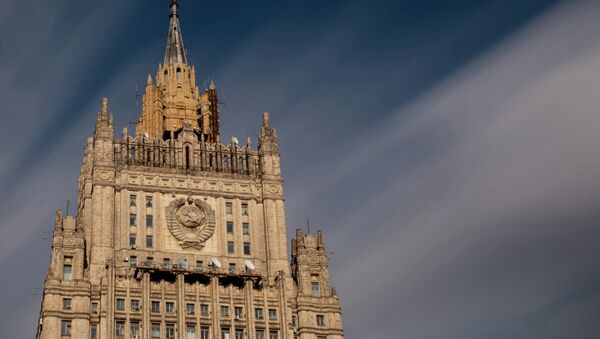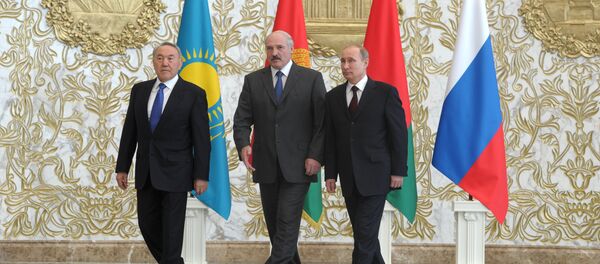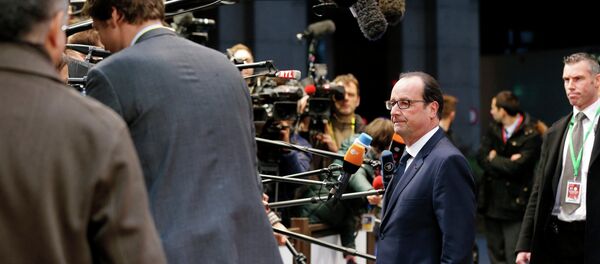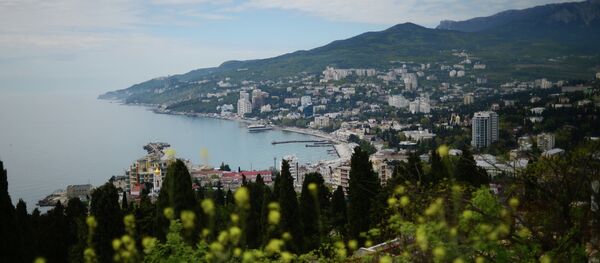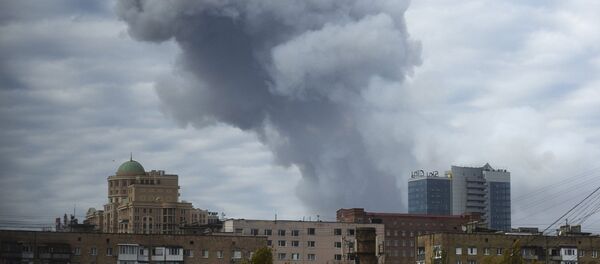“We hope that our partners will fully take into account the flaws of the Eastern Partnership policy and are ready to create a common space on the basis of equality and balance of interests,” the statement read.
Moscow is “confident that balanced reciprocal steps by interested parties could give an impetus to joint work on the creation of a common economic and humanitarian space from the Atlantic to the Pacific,” Lukashevich added.
Russia supports German leadership in promoting consultations between Moscow and Brussels, as well as dialogue between the European Union and the Eurasian Economic Union, Russian Foreign Ministry spokesperson Alexander Lukashevich said in a statement Saturday.
“We paid attention to the recent statements of the German leaders, which concerned promoting dialogue between the European Union and Eurasian Economic Union, as well as consultations between Moscow and Brussels in order to find the right compatibility of the Eastern Partnership countries’ responsibilities before the European Union and within the Commonwealth of Independent States. We support these approaches,” Lukashevich said.
Eastern Partnership is a EU policy initiative aimed at accelerating political association and economic integration between the union and “interested partner countries”, namely Armenia, Azerbaijan, Belarus, Georgia, Moldova and Ukraine.
The spokesman also noted that the Russian Foreign Ministry has “paid attention to the recent statements of the German leaders, which concerned promoting dialogue between the European Union and Eurasian Economic Union, as well as consultations between Moscow and Brussels in order to find the right compatibility of the Eastern Partnership countries’ responsibilities before the European Union and within the Commonwealth of Independent States.”
Moscow welcomes such approaches, Lukashevich stated, adding that they are in line with proposals Russia has repeatedly put forward in its dialogue with the European Union.
Most countries covered by the Eastern Partnership policy are members of the Commonwealth of Independent States (CIS), with several of them signing a multilateral free trade agreement within the CIS framework. Armenia, Belarus and Kazakhstan, alongside Russia, are also members of the Eurasian Economic Union, which envisions close economic integration and the creation of a single economic market.
Russia has on numerous occasions voiced concern over the EU integration of countries such as Ukraine and Moldova, which recently signed association agreements with the European Union, citing the possibility of an uncontrolled flow of duty-free goods from the EU to the Russian market.
Russia Interested in Respectful, Fruitful Cooperation With EU
Russia and the Eurasian Economic Union are interested in respectful and mutually beneficial cooperation with the European Union, Russian Foreign Ministry spokesman Alexander Lukashevich said Saturday.
The spokesman noted that “the desire to further strengthen mutually beneficial and equal economic cooperation with other countries and international integration organizations is confirmed in the preamble to the Treaty establishing the Eurasian Economic Union on May 29, 2014.”
The Eurasian Economic Union, which currently comprises Russia, Belarus, Kazakhstan and Armenia and is soon to be joined by Kyrgyzstan, will go into effect on January 1, 2015.
The union aims to boost economic integration between the member states and envisions the establishment of a single economic market.
Moscow Regrets Countries Claiming to Be Democratic Impose Sanctions in XXI Century
"It is sad that the countries claiming to be democratic resort to such methods [imposing sanctions] in the XXI century," the ministry's statement read.
According to the ministry, the introduction of the new unilateral sanctions against Crimea shows that the republic's decision to reunite with Russia was "unanimous and voluntary," that is why the new sanctions target the whole population of the republic.
On Friday, the United States has imposed new restrictions on investment and trade with Crimea. US president's executive order "prohibits the export of goods, technology, or services to Crimea and prohibits the import of goods, technology, or services from Crimea, as well as new investments in Crimea." The new sanctions also target some individuals, such as Crimean Prosecutor Natalia Poklonskaya. Canada has also supported the sanctions.
Nighty-six percent of the Crimean voters backed reunification with Russia in a referendum held on March 16. Russia's reunification with its former republic led to a current political standoff between Moscow and the West.
Over the past few months, the West has imposed several rounds of sanctions targeting Russia's banking, energy and defense sectors over the country's reunification with Crimea and alleged involvement in the Ukrainian crisis – a claim Moscow has repeatedly denied.
